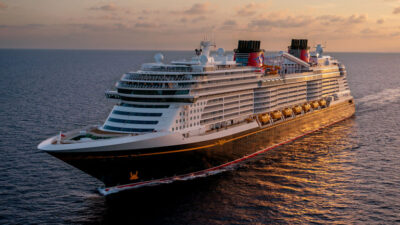Cruise enthusiasts and luxury travelers alike have reason to celebrate, as Norwegian Cruise Line Holdings (NCL) and the renowned Italian shipbuilder Fincantieri have entered into a groundbreaking partnership. The deal, which is valued at approximately €9 billion (roughly $9.34 billion), will see the construction of four new cruise liners, further solidifying NCL’s commitment to enhancing its fleet with cutting-edge vessels. This deal marks the largest single shipbuilding contract ever signed by Fincantieri and is a testament to the growing global demand for innovative, high-end cruise experiences.
The Scale of the Deal
The newly-ordered ships will be colossal, with each vessel capable of accommodating more than 8,300 people, including crew members. This impressive scale indicates that NCL is focused on maintaining its position as one of the leading cruise lines in the world, catering to a growing global market for immersive and expansive cruise experiences. The ships will be delivered at staggered intervals—2030, 2032, 2034, and 2036—and will be built at Fincantieri’s Monfalcone shipyard, located in northeastern Italy.
The strategic timing of the deal signals that NCL is anticipating continued growth and diversification in the cruise industry over the next decade. As new and returning guests seek more luxurious, technologically advanced options, the order of these ships comes at a time when other cruise lines are also vying for innovation in their fleets.
What These New Ships Mean for the Future of Cruising
For passengers, the new ships will provide unrivaled comfort and state-of-the-art amenities. These vessels are expected to push the envelope on design, incorporating sustainable technologies, spacious cabins, enhanced dining options, and unique entertainment experiences. NCL’s past ships have already set industry standards for comfort, service, and cutting-edge entertainment, and these new ships will likely continue that trend.
One of the key features of these new vessels will be their environmental sustainability. There is a growing awareness of the need for the cruise industry to minimize its ecological footprint, and many cruise lines, including NCL, have committed to reducing carbon emissions and improving fuel efficiency. The new ships will likely be equipped with advanced propulsion systems, such as LNG (liquefied natural gas), which is cleaner than traditional marine fuels. Additionally, these vessels will be designed to meet or exceed international environmental regulations, offering a more eco-friendly cruise experience.
The ships will also feature innovative smart technology that will improve the passenger experience. This includes app-based booking and navigation systems, automated check-in procedures, and AI-assisted services. Onboard experiences may include virtual reality entertainment, interactive dining, and cutting-edge wellness centers. With the promise of more modern, immersive experiences, the new ships will raise the bar for luxury cruising.
Norwegian Cruise Line’s Commitment to the Future
The decision to embark on this monumental deal with Fincantieri highlights NCL’s long-term vision for the future of cruising. It is clear that the cruise line is committed not only to expanding its fleet but also to maintaining its leadership in the luxury cruise market.
As the cruise industry continues to grow, NCL’s new vessels will likely inspire other cruise lines to ramp up their efforts to innovate and invest in sustainable, luxurious ships. The expansion is expected to not only boost Norwegian Cruise Line’s revenue but also contribute to the broader cruise industry’s recovery and growth post-pandemic. With competition ramping up for travelers’ dollars, NCL’s investment in high-tech, eco-friendly luxury ships signals a new wave of cruising.




